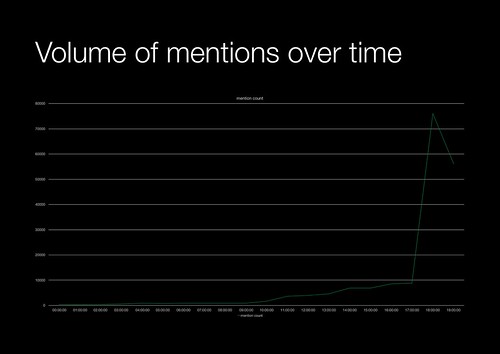Luxury Brands Must Avoid This Easy Growth Trap | Jing Daily – China has been reporting significant growth rates in the luxury sector recently, and many global luxury brands have been counting on China to be their silver lining. However, this recent growth has, to a large extent, been driven by repatriation (meaning sales that customers would otherwise have made during overseas travels). With travel routes to Europe and the US closed, Chinese luxury customers have been shopping domestically, which has driven the luxury demand inside Mainland China. Yet, this strong increase in demand in China could not offset the drastic decline in demand in both Europe and the US, at least during the second quarter of 2020. As such, many brands across categories like luxury cars, high-end jewelry, watches, and luxury fashion are sitting on enormous inventories and are looking at empty stores – Jing Daily were warning of the easy growth trap in discounting but their description of the market at the moment is very interesting. I suspect that the luxury sector is already well aware of this. The have seen department stores fall into the easy growth trap. Luxury brands have historically gone to extreme lengths to avoid the easy growth trap. Reputedly, during the last recession Rolex is alleged to have bought excess products from its dealers and the grey market to recycle, rather than discount. More on luxury and retailing.
AI in Marketing: Myths vs. Reality – Techerati – Johnny Bentwood articulates a more reasonable assessment of AI. Badging everything ‘AI’ wonder technology is the easy growth trap of the tech sector. We’ve been here before
Teens are turning themselves into Gucci models on TikTok | Dazed – Luxury is interesting because here brands really have meaning. The Gucci brand has history and meaning that comes from their behaviours and their products – rather than merely from how they have spent their ad budget in the past. Their Northern Soul homage in 2017 is just one example of the brand’s authenticity, energy and creative eye. For Gucci, it’s vital their brand continues to be culturally relevant, so they need to participate in TikTok. First, their #AccidentalInfluencer Grans in fur coats (with 8m views) showed they understood the grammar of TikTok and then the #GucciModel Challenge invites – no, demands – people play along. As Gucci makes fun of themselves they convey strong messages and have 26m views already. One thing I particularly like is how they use the audio by Lachlan Watson, star of the Netflix hit ‘Chilling Adventures of Sabrina’. This is the antithesis of the glossy spreads Gucci and others place in the top magazines and balances their marketing with authenticity which suits TikTok so well – Simon over at Great TikTok creative
‘It’s Ridiculous.’ Underfunded FTC and DOJ Can’t Keep Fighting the Tech Giants Like This – Big Technology
China’s middle-class dream of a second home in Malaysia dashed by coronavirus and geopolitical tensions | South China Morning Post – “Most of these Chinese individual investors are not prepared – financially or psychologically – for the risks of overseas investment,” Zhao said. “They have experienced only economic growth and a booming property market on the mainland for decades, and they lack the funds and risk awareness to deal with the downside [of the economic cycle].” – the belt and road initiative isn’t all plain sailing
‘Funnel juggling’ is the answer to marketing effectiveness – Marketing Week – For the long work, in most Uber countries there are a series of brand campaigns that push the emotional benefits of travel. Inevitably and rather cleverly the focus is on the top of the benefit ladder; or, in Uber’s case, the end of the journey, when it delivers you to your destination and the emotional benefit that awaits. In the US, for example, the brand uses TV, outdoor and digital media to associate Uber with these moments. It’s mass-market, it’s emotional, it’s brand-focused and it asks nothing of the consumer other than to see Uber as more than a ride-sharing service.
I have no idea what the split in Uber’s marketing spend actually is but I will bet about half of the money in any country also goes on the short of it.
Gucci’s Gaming Garments | Gartner for Marketing – Chinese princelings….
Cinnabon in the Oven | Gartner for Marketers – processed foods are the new eating out
Public Image Decline of South Korean Churches – The PeninsulaThe Peninsula – Pastors in South Korea claim that church-linked COVID-19 outbreaks have tainted the public image of churches in the country. Most recently, a church in Seoul emerged as the source of the country’s second largest infection cluster following a spike in cases associated with a religious sect in Daegu earlier this year. A 2015 Gallup Korea poll finds that more South Koreans, particularly those in their twenties and thirties, are moving away from religion.
Hallyu Con 2020 | KCCUK – virtual festival on October 4th
Ageism Is Not Just A Disease—It Is The New Business Model For Top Ad Agencies – the original statement inadvertently let the cat out of the bag about agencies’ cost cutting at the expense of clients: they are now inhabited by junior talent, inexpensive and inexperienced. And this is the main reasons for the decline of the advertising industry. The holding companies like WPP were formed in the eighties, and they started consolidating the industry by gobbling up independent agencies. To do so, they needed to issue debt and the industry mortgaged itself to bankers. Madison Avenue went from focusing on the clients’ business to focusing on their balance sheet. And that meant getting rid of “cost”: talented experienced people in their forties and fifties and replacing them with cheaper labor.
GBA hurt by Cold War, pandemic and protests EJINSIGHT – ejinsight.com – Greater Bay Area (cities and Hong Kong around the Pearl River delta) that China envisages as kind of like Judge Dredd’s Mega City One
Video encoders using Huawei chips have backdoors and bad bugs – and Chinese giant says it’s not to blame • The Register
Hard to pardon: why Tenet’s muffled dialogue is a very modern problem | Tenet | The Guardian – “Think about it: the first few Star Wars [films], we heard them all. We heard all the lines. Listen to Apocalypse Now – you hear everything.” Price agrees: “If you watch old movies, you might hear some sound effects here and there but now they go nuts: somebody’s walking across the room in a leather jacket, you hear the zippers clink and the creak of the leather and every footstep is right in your face.” When television became commonplace in the mid-20th century and challenged cinema’s dominion, cinema needed to distinguish itself; it needed to prove that it could justify people leaving the comfort of their homes. It did so partly by becoming bigger and louder. In an era – and a pandemic – in which home streaming dominates, cinema may be forced to pull out the stops once more. “I think we’re bombarded,” Paul Markey, a projectionist at the Irish Film Institute, says of modern films. “The more expensive movies have got, the more of a bombardment they become on your senses.”
‘The Devil All The Time’ Costume Designer On Its Style | Esquire – the world has never fallen out of love with American workwear; no split, no wandering eye. The only thing that has changed is who wears it. The plaid-clad men of The Devil All The Time wear clothes that are as tough and hardscrabble as their lives. Their ancestors still flock to the same brands – think Dickies, Levi’s and Carhartt – only now it’s because they’ve collaborated with Off-White. Still, context is context, but the fact that these classics still work is testament to their longevity, both in design and build – the timelessness of American workwear


